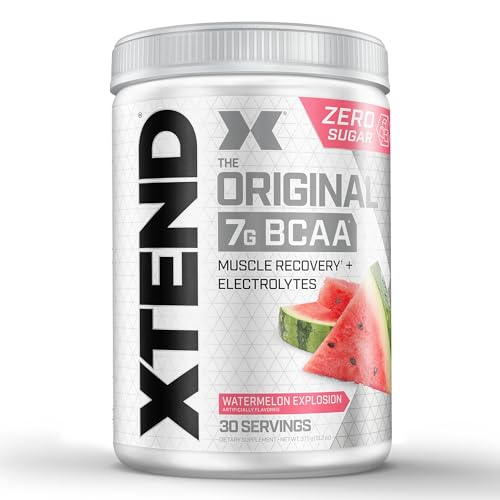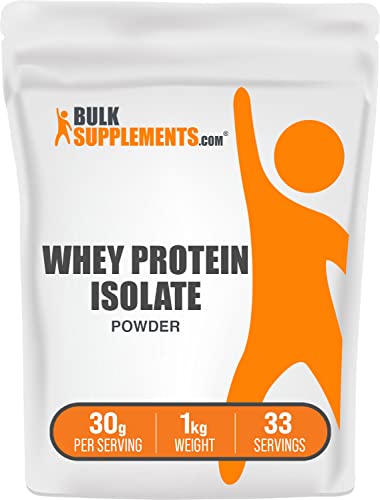Learn if Muscle Milk is good for weight loss and how its nutritional value, protein content, and effectiveness contribute to your journey. Understand the role of protein in muscle building and recovery. Be aware of potential side effects such as digestive issues, allergic reactions, and kidney damage concerns.
Nutritional Value of Muscle Milk
Muscle Milk is a popular protein supplement that is widely used by athletes and fitness enthusiasts. It is important to understand the nutritional value of Muscle Milk to determine its effectiveness and suitability for your dietary needs. Let’s take a closer look at the key components of Muscle Milk: protein content, , and fat content.
Protein Content
Protein is an essential nutrient for our bodies as it plays a crucial role in building and repairing tissues, including muscles. Muscle Milk is known for its high protein content, which makes it an attractive option for those looking to increase their protein intake. With around 25 grams of protein per serving, Muscle Milk provides a substantial amount of this macronutrient.
Carbohydrate Content
Carbohydrates are our body’s primary source of energy. While protein is important for muscle growth and repair, carbohydrates are essential for fueling intense workouts and replenishing glycogen stores. Muscle Milk contains a moderate amount of carbohydrates, which can vary depending on the specific product variant. It is crucial to consider your overall dietary goals and carbohydrate intake when incorporating Muscle Milk into your routine.
Fat Content
Fat is another macronutrient that plays a significant role in our dietary needs. It provides a concentrated source of energy and helps in the absorption of fat-soluble vitamins. Muscle Milk contains a moderate amount of fat, which is essential for a balanced diet. However, it is important to note that the type of fat in Muscle Milk may vary depending on the specific product variant. It is recommended to choose options that are lower in saturated fat and higher in healthy fats, such as monounsaturated and polyunsaturated fats.
In summary, Muscle Milk offers a nutritional profile that includes a significant amount of protein, a moderate amount of carbohydrates, and a moderate amount of fat. This combination of macronutrients makes it a suitable option for individuals looking to support their muscle growth and recovery. However, it is important to consider your overall dietary goals and individual nutritional needs when incorporating Muscle Milk into your diet.
Muscle Milk and Weight Loss
Role of Protein in Weight Loss
Protein plays a crucial role in weight loss, as it helps to increase satiety and reduce cravings. When we consume protein, it triggers the release of hormones that signal our brain that we are full. This can prevent overeating and help us stick to our calorie goals. Additionally, protein has a higher thermic effect compared to carbohydrates or fats, meaning that our body burns more calories during the digestion and absorption process. This can give our metabolism a small boost, aiding in weight loss.
Effectiveness of Muscle Milk for Weight Loss
Muscle Milk, a popular protein supplement, has gained attention for its potential role in . It is important to note that while Muscle Milk can be a helpful addition to a weight loss plan, it is not a magic solution on its own. The effectiveness of Muscle Milk for weight loss depends on various factors, such as overall calorie intake, exercise routine, and individual metabolism.
Muscle Milk is rich in protein, which can support efforts by providing the body with essential amino acids necessary for muscle repair and growth. By preserving lean muscle mass, our body can burn more calories throughout the day, even at rest. Muscle Milk can serve as a convenient and tasty source of protein, especially for those who struggle to meet their protein needs through whole foods alone.
However, it’s important to remember that Muscle Milk is not a low-calorie product. It contains carbohydrates and fats, which contribute to its overall calorie content. Therefore, it is crucial to incorporate Muscle Milk into a well-balanced diet that is in line with our weight loss goals. It should be used as a supplement, rather than a replacement for whole foods.
In summary, while Muscle Milk can be a beneficial tool for due to its protein content, it should be used in conjunction with a healthy diet and regular exercise. It can help support muscle growth and repair, increase satiety, and contribute to an overall balanced approach to weight loss.
Muscle Milk and Muscle Building
Importance of Protein for Muscle Building
Protein plays a crucial role in muscle building. When we exercise, our muscles undergo small tears, and protein helps repair and strengthen these muscle fibers. It also promotes the growth of new muscle tissue. Protein is made up of amino acids, which are the building blocks of muscles. Without an adequate amount of protein, our muscles won’t have the necessary resources to recover and grow.
Role of Muscle Milk in Muscle Recovery
Muscle Milk is a popular supplement among athletes and fitness enthusiasts due to its potential benefits for muscle recovery. It is specifically formulated to provide a high amount of protein, which can support muscle repair and growth. Muscle Milk contains a blend of different protein sources, such as whey and casein, which are known for their ability to be absorbed and utilized by the body efficiently.
Muscle Milk also contains essential nutrients like vitamins, minerals, and carbohydrates, which can contribute to overall muscle recovery. These nutrients replenish glycogen stores, provide energy, and support the body’s recovery process after intense workouts. Additionally, Muscle Milk is often fortified with additional ingredients like creatine, which may further enhance muscle growth and strength.
When consumed after a workout, Muscle Milk can help optimize the muscle recovery process by providing the necessary nutrients to repair and rebuild muscle tissue. It can also help prevent muscle breakdown and promote muscle protein synthesis, which is essential for muscle growth.
In summary, Muscle Milk can be a valuable tool in supporting and recovery. Its high protein content, along with other essential nutrients, can assist in repairing and strengthening muscles after exercise. However, it’s important to remember that Muscle Milk should be used as a supplement and not as a replacement for a balanced diet and regular exercise. Consulting with a healthcare professional or a registered dietitian can help determine the appropriate use of Muscle Milk based on individual needs and goals.
Potential Side Effects of Muscle Milk
Digestive Issues
Muscle Milk is a popular protein supplement that is often used by athletes and fitness enthusiasts to support their training and muscle growth. While it can provide numerous benefits, it is important to be aware of potential side effects that may occur, particularly in relation to digestive issues.
One common concern with Muscle Milk is its high lactose content. Lactose is a type of sugar found in milk and dairy products, and some individuals may have difficulty digesting it. This can lead to symptoms such as bloating, gas, and diarrhea. If you have lactose intolerance or sensitivity, it is recommended to choose lactose-free protein supplements or explore alternative options to avoid these digestive issues.
Another potential cause of digestive issues with Muscle Milk is the presence of artificial sweeteners, such as sucralose or aspartame. These sweeteners are used to enhance the taste of the product without adding extra calories. However, some people may experience gastrointestinal discomfort or even allergic reactions to these additives. If you are sensitive to artificial sweeteners, it is advisable to opt for protein supplements that are sweetened naturally or with alternative sweeteners like stevia.
To minimize the risk of digestive issues, it is important to follow the recommended serving size and not exceed your daily protein intake requirements. Additionally, consuming Muscle Milk with a balanced diet that includes fiber-rich foods can help support healthy digestion and prevent any potential discomfort.
Allergic Reactions
While Muscle Milk is generally safe for most individuals, it is essential to be aware of potential allergic reactions that may occur. Allergies can vary from person to person, and it is crucial to pay attention to any adverse symptoms that may arise after consuming Muscle Milk.
One ingredient commonly found in Muscle Milk is whey protein, which is derived from milk. Individuals with milk allergies or lactose intolerance may experience allergic reactions when consuming this product. Symptoms can range from mild to severe and may include hives, itching, swelling, difficulty breathing, or even anaphylaxis in severe cases. If you have a known milk allergy or experience any of these symptoms, it is crucial to seek medical attention immediately and avoid consuming Muscle Milk or any other products containing milk or dairy derivatives.
In some cases, individuals may also be allergic to other ingredients found in Muscle Milk, such as soy or gluten. Soy allergies can cause symptoms like skin rashes, gastrointestinal discomfort, or even anaphylaxis. Gluten allergies or sensitivities can result in digestive issues, joint pain, fatigue, or skin problems. If you suspect an allergic reaction to any ingredient in Muscle Milk, it is advisable to consult with a healthcare professional and consider alternative protein supplements that do not contain those allergens.
Kidney Damage Concerns
There have been concerns raised about the potential impact of high protein intake, including the consumption of protein supplements like Muscle Milk, on kidney health. While protein is essential for muscle building and overall health, excessive protein intake may place additional strain on the kidneys.
The kidneys play a crucial role in filtering waste products from the blood and maintaining fluid balance in the body. When protein is metabolized, it produces waste products that need to be eliminated by the kidneys. Consuming excessive amounts of protein can increase the workload on the kidneys, potentially leading to kidney damage or the development of kidney stones over time.
However, it is important to note that these concerns primarily apply to individuals with pre-existing kidney conditions or those who already have compromised kidney function. For individuals with healthy kidneys, moderate protein intake, including the consumption of Muscle Milk, is generally considered safe and unlikely to cause any adverse effects.
To ensure kidney health, it is recommended to consume protein supplements in moderation and maintain a balanced diet that includes a variety of nutrient-rich foods. If you have any concerns about your kidney health or are at a higher risk of kidney problems, it is advisable to consult with a healthcare professional before incorporating Muscle Milk or any other protein supplements into your diet.
In conclusion, while Muscle Milk can be a beneficial protein supplement for many individuals, it is important to be aware of potential side effects. Digestive issues, allergic reactions, and kidney damage concerns are among the potential risks associated with the consumption of Muscle Milk. By being mindful of your individual sensitivities and following recommended guidelines, you can make informed choices to support your overall health and fitness goals.





